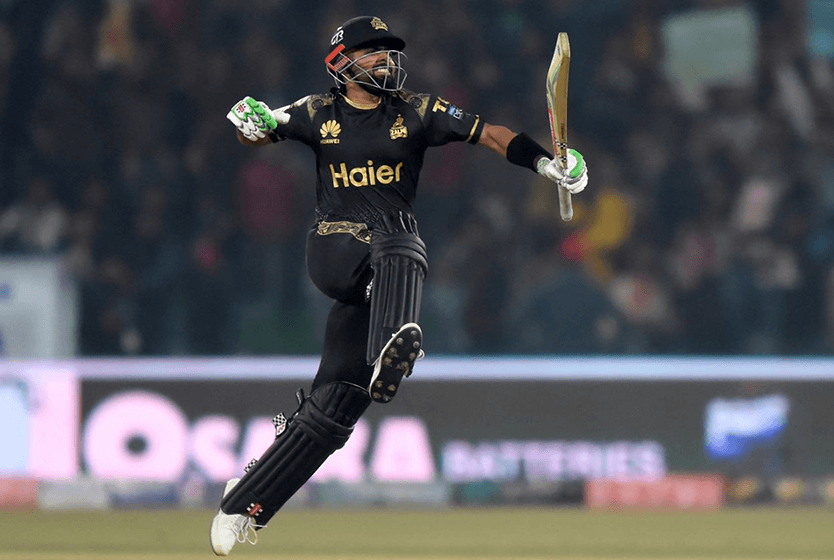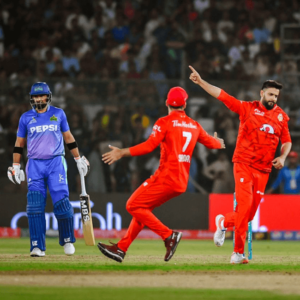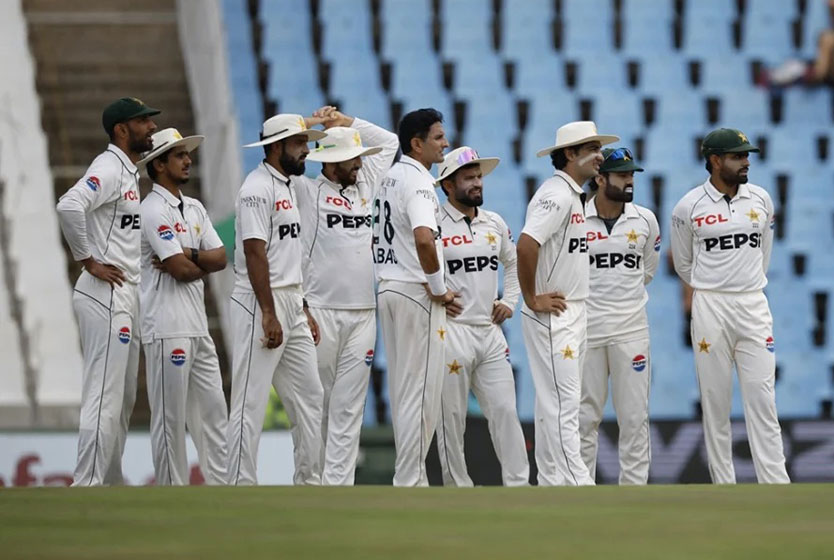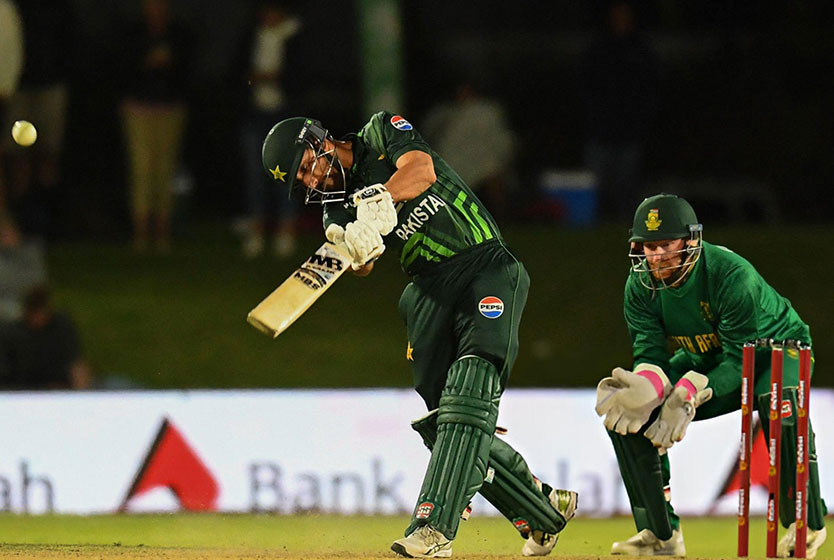
Learning To Love Babar Again
I woke up one September morning last year, trying to remember what I had just been dreaming about. It was about Babar Azam, lifting the World Cup after scoring his 11th consecutive century in the tournament.
Of course, most dreams are unrealistic and as brittle as glass, made to be broken, and this one was no different. But if you’ve been a Pakistan fan for at least the last decade and a half, you wouldn’t blame yourself for believing, even for a second, that Babar was capable of achieving the unthinkable, even if it was something as outlandish as what I had dreamt about that night. For he was the chosen one. The batting prodigy that we’d all been waiting for, who’d bring some authority, some style, some respect to the batting lineup that had only mustered a single century in the three World Cups before his debut, and that too in a dead rubber.
I’d first seen him play on a foggy morning in Lahore in late 2014, back when our senior team was in exile, and we had to content ourselves with watching the Faysal Bank T20 Cup, or, in this case, our “A” team playing Kenya in the pits of a Lahori winter. From that day onwards, I had waited and hoped for him to play for Pakistan and fulfill the promise I saw in Lahore that day.
For that reason, all of his successes felt deeply personal. All of his milestones were sweetly cherished, no matter the strength of the opposition or the weight of the fixture. For all his runs in white-ball cricket against “second string” opponents, there were plenty of performances against full-strength sides and brilliant innings in Test cricket in all sorts of conditions, showing he could make runs against anyone, anywhere. He piled on the runs with a calm and composure uncharacteristic of Pakistan.
At the most crucial point of his career, though, the 2023 World Cup, Babar couldn’t deliver what all those years of runs and centuries had promised he would. Admittedly, he did get starts in big games, unlike most of our other batters. He averaged a respectable 40, too. And yet, he was not among the top 25 run-scorers in the tournament. For a man rightly hailed as an all-time Pakistani great, that was not enough. Because Babar could only be compared to his past self, not to any other Pakistani batter, as he was always supposed to be above the rest of his teammates.
Yes, there was disgraceful behavior and interference from the board at the worst possible time, rumors about his approach to fitness standards, and how he’d refused to include mystery spinner Abrar Ahmad ahead of out-of-form spinners. But if there was one man in the team who you’d count on to rise above all adversities, it was Babar. In the end, though, a player who seemed like a dream come true was not immune to harsh realities.
Watching from afar, all I could feel was disappointment in his batting and his leadership. He had failed on the biggest stage, in his best format. I couldn’t bring myself to hope for redemption in the Test series against Australia, even if he was free of the burden of captaincy. And his T20 game, especially his stubborn, constant lack of intent in the Powerplay, had been a source of frustration for a long time. It felt as though he had no desire or hunger to use his extraordinary talent and ability to win when it mattered. What seemed like calm, began to feel like surrendering silence.
In the modern cricketing ecosystem, it is quite easy for the essence of cricket, its identity as an art form, to be enjoyed and cherished, to get lost in the extreme commercialization, the seething masses on social media, and the toxic cults of personality. For the soul and humanity of cricket to be forgotten. All these factors made me fall deeper into a pit of disappointment, to the point where I thought that the Babar fan inside me had died. I couldn’t fathom that he could have failed.
Perhaps his own unprecedented brilliance had made me forget about his humanity. There have been countless others who have failed in much bigger ways. One of the most valuable life lessons is that we must allow ourselves to try and fail in order to learn from it and improve ourselves. Why should Babar be any different?
Even after those disappointments, most people would have backed him to be Pakistan’s greatest-ever batter, and in this year’s PSL, he showed us why. In his weakest format, he stood where he belongs, head and shoulders above the rest. He hasn’t been perfect, but no one should expect him to be. After all, he is a player whose classical style is anathema to the heavy metal of T20 cricket, a textbook player for purist palates. And yet, he broke out of his comfort zone, began attacking in the Powerplay, and did it better than anyone else while also racking up a mountain of runs, carrying his team to a top-two finish that had seemed unlikely before the tournament began.
And he made me remember why, on that foggy Lahore morning almost 10 years ago, he had made me feel like the flame of hope was flickering again for Pakistan cricket.
The opinions expressed solely belong to the writer and do not necessarily reflect the views of Grassroots Cricket.







Leave a Reply